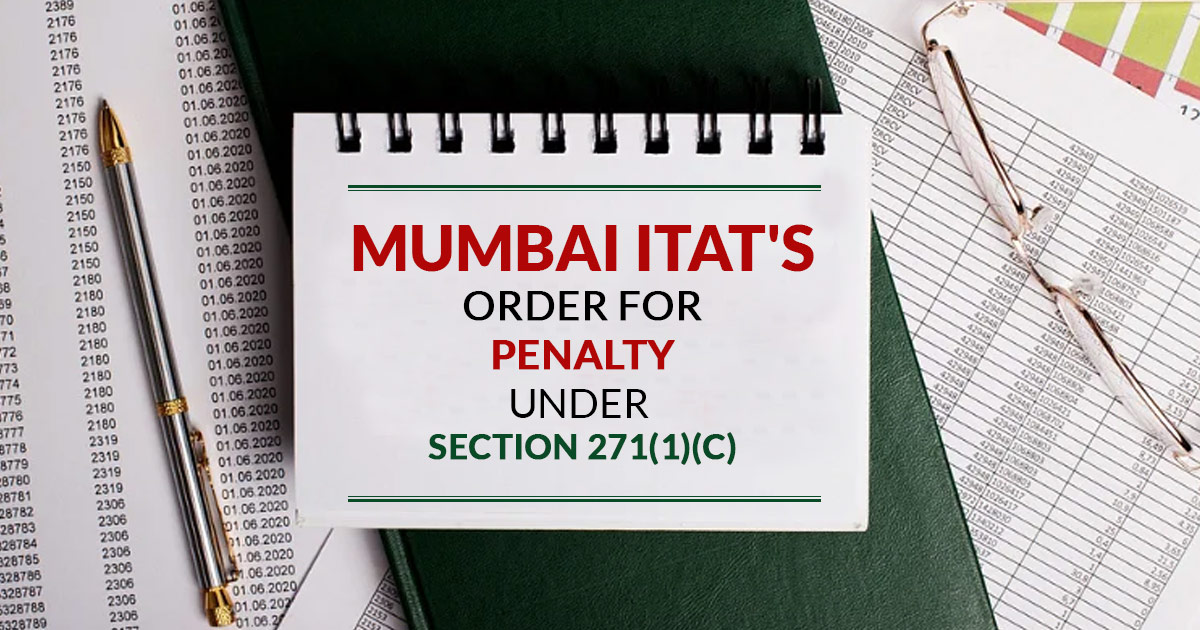
The Mumbai bench of the income tax appellate tribunal (ITAT) has freshly stood that the penalty beneath section 271(1)(c) of the IT act 1961 shall not be imposed towards the cause that the taxpayers had wrongly availed the tax deduction of the yearly exchange service cost looking for the corresponding as revenue expenditure.
The taxpayer is the real estate firm. While executing the assessment the assessing officer sees that taxpayer firms need to build the “payment of Rs 19,68,682 to M/s. Nifinity Ltd. and Rs.15,60,782/- to M/s. Cobweb Solutions Ltd. as Exchange Server Services.” It is clarified that the stated amount was opened as the revenue expenditure rather than the capital expenditure.
While acknowledging the next petition furnished through the taxpayer the board bench in which “Judicial Member Pavan Kumar Gadale and Accountant Member Shamim Yahya observed that the” taxpayer’s claim is that the expenditure on the account of the yearly exchange service charge is to be employed as revenue expenditure.
Read Also: Claimable Income Tax Deductions for Expenses U/S Section 80C
Answering multiple decisions the bench held that “we are of the opinion that on the facts and circumstances of the case, the conduct of the assessee is not contumacious to warrant levy of penalty u/s.271(1)(c) of the Act. In this regard, we draw support from the decision of the larger bench of Hon’ble Supreme Court in the case of Hindustan Steel Ltd. vs. the State of Orissa [1972] 83 ITR 26 (SC) or the proposition that an authority may not levy penalty unless the conduct of the assessee is found to be contumacious.”
The bench stated that “In our considered opinion, the aforesaid claim, by no stretch of imagination can be said to be ex-facie bogus. In this view of the matter, a disallowance of the same cannot lead to the conclusion that the assessee is guilty of furnishing of inaccurate particulars of income or concealment of income on the touchstone of aforesaid Hon’ble Supreme Court decision,”